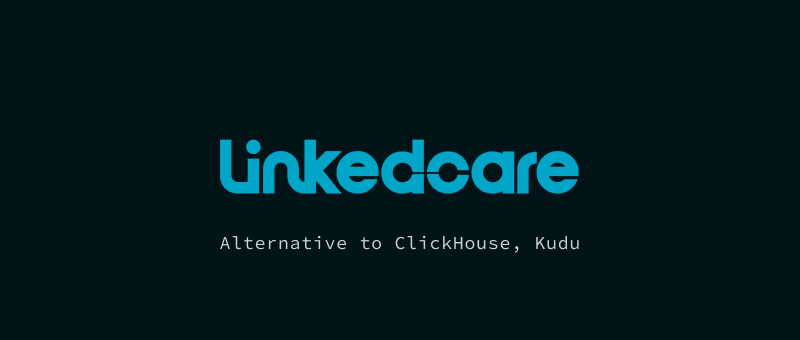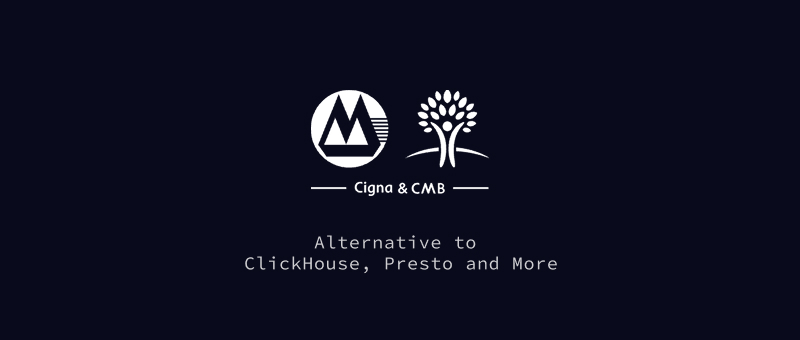- Products
- Solutions
- Docs
- Resources
- Contact us
Tech Alternatives
Alternative to ClickHouse
Apache Doris and ClickHouse are both leading global real-time data warehouses, supporting columnar storage and fast queries. Doris has advantages like higher concurrency, more efficient joins, easier maintenance, and MySQL-like SQL syntax, making it simpler to use and deploy.
Featured Migration Cases
“Tencent Music's data platform has migrated from ClickHouse to Apache Doris, improving data timeliness and reducing maintenance costs. Doris' flexible ingestion methods and robust consistency protocol ensure high availability and reliability.”
Massive boost in multi-table join performance
Easy scaling and maintenance.
Efficient data processing and real-time updates
“Apache Doris has faster query response times than ClickHouse in the vast majority of scenarios, especially in complex join scenarios, where its performance is significantly superior to that of ClickHouse.”
Core business queries 2-3x
Complex join queries 2-10x
Can run all ClickHouse OOM queries
“By replacing ClickHouse with Doris, Kwai successfully upgraded to a lakehouse architecture, simplifying the data pipeline and eliminating the need for data import, as Doris can directly access data lake data.”
Directly query of data lake data
Improved query performance
Flexible data governance with materialized views
Why Choose Apache Doris
Apache Doris
- Architecture & SQLBased on MPP architectureStandard SQL, MySQL-compatible
- QueriesDistributed joinsCost-Based Optimization (CBO)Query rewrites and multi-table materialized viewsHigher concurrent performance
- Real-time UpdatesFeatures a strongly consistent primary key storage model, supporting synchronous data updates and deletions
- Data APIOffers high-throughput read APIs based on Arrow-flight, facilitating integration with other engines such as data science/AI tools
- Building Open LakehouseServes as a Lakehouse SQL engine, supporting queries on Hive, Hudi, Iceberg, and Parquet data lake formats
- Operations & MaintenanceSupports automatic scaling in, scaling out, and replica balancing
- PerformanceIn wide table benchmarks (ClickBench), Doris ranked top 1 or top 2 in October 2022 and October 2024, outperforming ClickHouseIn large TPC-H and TPC-DS tests, Doris achieved leading performance
- Deployment
Doris is supported by a commercial company,VeloDB, which provides cloud-native services on AWS, Azure, and GCP, as well as mature SaaS and Bring Your Own Cloud (BYOC) versions
VeloDB, the commercial entity behind Doris, also offers an on-premises enterprise version
ClickHouse
- Architecture & SQLUses Scatter-Gather architectureSQL-like capabilities but with non-standard SQL
- QueriesPoor join implementationLacks a Cost-Based Optimizer (CBO)Only supports single-table materialized viewsLower concurrency performance
- Real-time UpdatesOnly supports asynchronous updates, allowing old values to be read after an update.
- Data APIOnly inefficient data reading via JDBC API
- Building Open LakehouseLimited Lakehouse integration capabilities.
- Operations & MaintenanceRequires manual rebalancing during scaling operations
- PerformanceIn terms of ClickBench performance, ClickHouse and Doris have been taking turns leadingExperiences many OOM (Out of Memory) queries in large TPC-H and TPC-DS tests
- DeploymentCurrently, ClickHouse's BYOC version is still in invite-only beta testingNo on-premises enterprise version is available for ClickHouse
Performance Comparison
ClickBench Benchmark
ClickBench is a benchmarking tool created and maintained by the ClickHouse team to evaluate the performance of analytical databases.
It focuses on testing the performance of large, flat tables rather than complex multi-table joins. It uses real-world data from a major web analytics platform, covering typical scenarios such as clickstream analysis and structured logs.
The benchmark consists of a set of queries that test aggregation operations and single-table performance, without involving complex joins. This makes it especially useful for evaluating databases optimized for real-time analytics and large-scale data processing.

SSB-Flat SF100 Benchmark
SSB-Flat SF100 is a benchmark designed to test the performance of analytical databases in handling large, wide tables.
It is derived from the Star Schema Benchmark (SSB) but flattens the star schema into a single wide table to focus on the performance of single-table queries.
The SF100 indicates that the data scale is 100 times the base size, making it a significant test for evaluating query performance and system scalability.

TPC-H SF100 Benchmark
The TPC-H benchmark with a scale factor of 100 (SF100) is a widely used standard for evaluating database performance. It includes a set of complex SQL queries designed to simulate real-world business intelligence workloads.
The SF100 indicates that the data size is 100 times the base size, making it a large-scale test to measure query performance and system scalability.
Note: Since ClickHouse failed to execute 7 queries, the total execution time refers to the time taken by Doris to run all 22 queries, and by ClickHouse to run only 15 queries.

TPC-DS 1TB Benchmark
TPC-DS 1TB is a widely recognized benchmark for evaluating the performance of data warehouses and analytical databases. It involves a dataset of approximately 1TB in size, containing around 6.35 billion records spread across 24 tables.
The benchmark includes 99 complex queries designed to test various aspects of database performance, such as joins, aggregations, and subqueries.
The TPC-DS schema is based on a snowflake schema, representing real-world scenarios like web, catalog, and store sales. The 1TB scale is considered a moderate size for data warehouses but is still challenging due to the complexity of the queries and the large number of records
Note:TPC-DS makes heavy use of correlated subqueries which are at the time of testing (September 2024) not supported by ClickHouse. As a result, about 50% of benchmark queries will fail with errors.

More Migration Stories
 User Stories
User StoriesClickHouse & Kudu to Doris: 10X concurrency increased, 70% latency down
The value-added report provided by Linkedcare to customers was initially provided by ClickHouse, which was later replaced by Apache Doris2025/01/14Yi Yang, Linkedcare User Stories
User StoriesLess components, higher performance: Apache Doris instead of ClickHouse, MySQL, Presto, and HBase
This post is about building a unified OLAP platform. An insurance company tries to build a data warehouse that can undertake all their customer-facing, analyst-facing, and management-facing data analysis workloads.2023/11/22Big Data Platform R&D User Stories
User StoriesLog analysis: How to digest 15 billion logs per day and keep big queries within 1 second
This article describes a large-scale data warehousing use case to provide reference for data engineers who are looking for log analytic solutions. It introduces the log processing architecture and real case practice in data ingestion, storage, and queries.2023/09/16Yuqi Liu